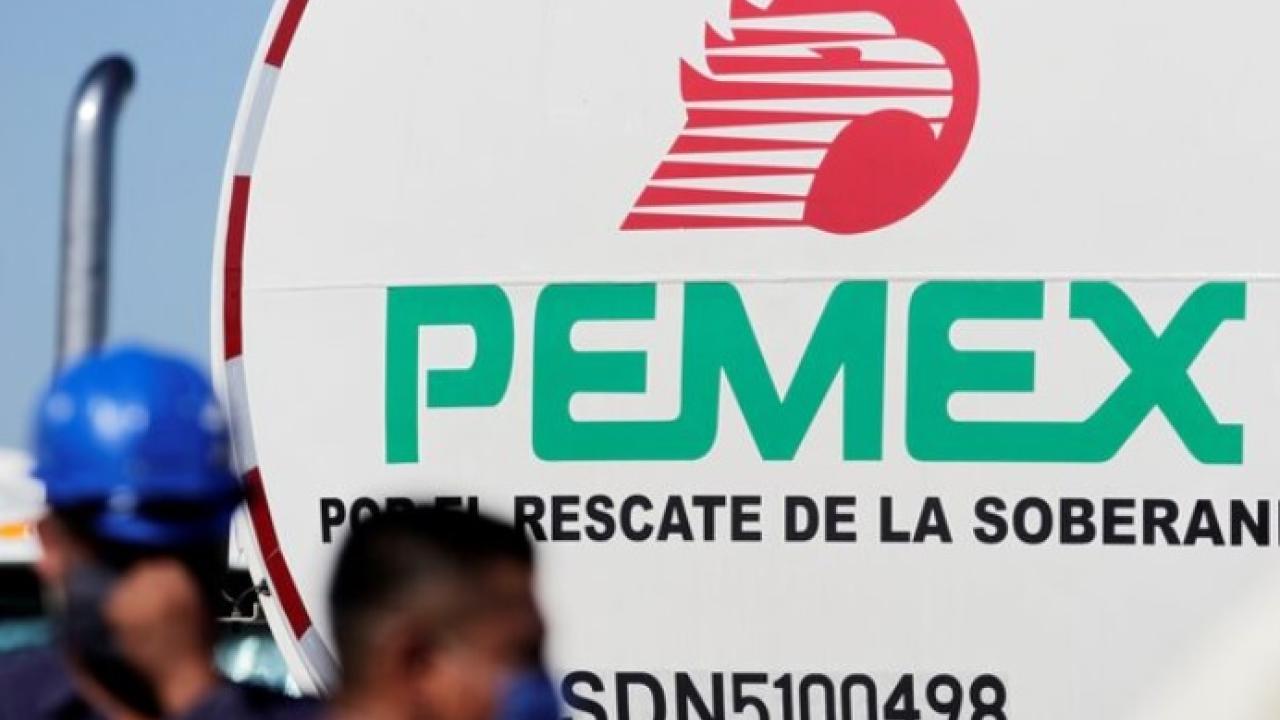
Between transfers and reductions in the Shared Utility Right rate, the government has given support equivalent to 6.1% of the Gross Domestic Product to the oil company.
The support that the current government has granted to Petróleos Mexicanos (Pemex), until the first half of this year, amounts to 2.1 billion pesos, approximately US$ 111,458 million, according to the organization México Evalúa.
During the current administration, the government has supported Pemex, one of the most indebted oil companies in the world, in various ways to try to resolve its financial situation.
It has been through transfers and reductions in the Shared Utility Right (DUC) rate that the government has provided support of 2.1 billion pesos, which represents 6.1% of the Gross Domestic Product (GDP).
“This amount could have increased health spending to the level recommended by the World Health Organization (WHO) — 6% of GDP — but it was preferred to use it for this purpose. The cost has been enormous and the results very poor,” the organization said.
Transfers through the Energy Secretariat (Sener) - which have almost quintupled its budget - to the oil company in the current six-year term have been 1.14 trillion pesos (US$ 6.05 billion), 2.4 times more than what Enrique Peña Nieto contributed during his six-year term.
Regarding the DUC — which in the current six-year term went from 65% to 30% — with final figures at the end of 2023, fiscal support to Pemex for this concept totaled 865 billion pesos (US$ 4.59 billion) according to the organization, while with preliminary numbers as of May, it estimates support of 109 billion (US$ 578 million) so far this year.
“In general, oil revenues continue to show no improvement compared to previous governments. Although from January to June 2024, an 8.5% growth was achieved compared to 2023, in the six-year term only 547.2 billion pesos were totaled, an amount 15% lower than that observed at the end of Peña's government or 54% lower than that achieved at the end of Felipe Calderón's government,” said México Evalúa.
He added that the poor performance of oil revenues is due to the fact that crude oil extraction has not picked up.
“From January to June, the average production was 1,523 thousand barrels per day, a 5% reduction compared to the same period in 2023. This is the worst level on record since 1996, when data is available. The explanation is that underground reserves have been depleted, while Pemex is investing less in exploration,” he added.
OIL REVENUES AT THEIR WORST LEVEL
The reduction of the DUC, as well as the extensions for tax payments, have caused the federal government's oil revenues — those not kept by Pemex — to report their worst level in the first half of this year.
According to data from the Ministry of Finance and Public Credit (SHCP), in the first half of the year the federal government's oil revenues totaled 91.719 billion pesos, 55.701 billion pesos less than planned, and 45.6% less compared to the same period last year.
The amount observed between January and June of this year is the lowest for a similar period on record, the organization noted.
He recalled that, in addition to the reduction of the DUC, the López Obrador government has given extensions since last year for Pemex to pay its taxes.
“In 2023, the payment for October, November and December was allowed to be postponed, and then in 2024, the payment for those months was waived. The most recent action was to postpone the DUC payment for the month of May until August. Given the precedent, that payment may also be waived,” he added.
According to Adán García, head of the Non-Tax Revenue Policy Unit of the Ministry of Finance, the new extension would mean that Pemex would stop paying 15 billion pesos.
"However, since it is a deferral, it is expected that these resources will be transferred to the federation throughout the year, so there would be no fiscal impact of this measure," he said in a press conference in recent days.
In this regard, he noted that for the moment, and given the performance that the agency has observed in different variables, no additional support measures are expected for Pemex.
"However, the Treasury Department remains alert to any measures that may be required to strengthen the company," said the treasury official.
In the first half of this year, Pemex's total gross financial debt was 1.83 trillion pesos, equivalent to 5.3% of the country's Gross Domestic Product (GDP), and 3.2% lower than the previous year, the Mexican Institute for Competitiveness (IMCO) noted.
On several occasions, Rogelio Ramírez de la O, head of the Treasury who will repeat his position in Claudia Sheinbaum's government, has said that the government will continue to support Pemex; however, he has admitted that the restructuring of the oil company's debt will take several years.









